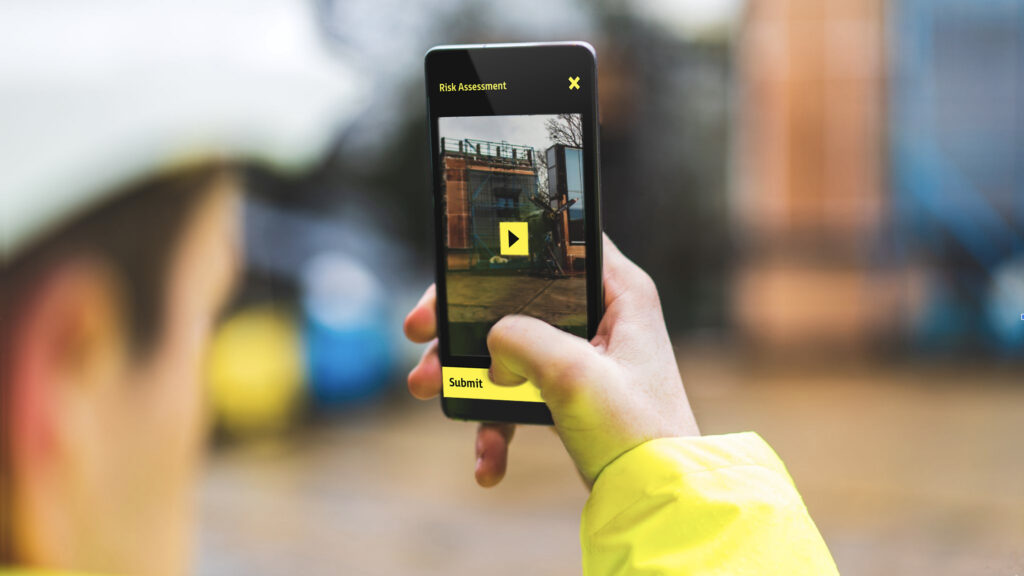User-centric design in compliance solutions
Ensuring compliance in fieldwork is critical, yet traditional processes can be cumbersome. According to a recent survey, 44% of organisations cite handling compliance assessments, undergoing control testing, and implementing policy updates as their top compliance management challenges. Digital solutions, particularly those that emphasise user-centric design, can transform these processes, making them both intuitive and effective. FYLD provides a prime example of how such solutions can enhance compliance and user experience.

The importance of user-centric design
User-centric design focuses on the needs and preferences of users, ensuring solutions are functional, accessible, and easy to use. This approach is crucial for compliance tools, where complex regulatory requirements need to be manageable for fieldworkers. Forget navigating through mountains of paperwork. User-friendly interfaces and automated processes significantly streamline adherence to regulations.
Key Elements of User-Centric Compliance Solutions
- Simplicity in Design: Effective compliance platforms cut through the complexity of compliance tasks with a user-friendly design. Straightforward icons and step-by-step guides make navigating the platform accessible, even for those with limited technical knowledge. Continual integration of user feedback ensures that the platform evolves to meet users’ needs effectively.
- Automated Risk Assessments: Utilising AI to automate risk assessments saves time and improves accuracy by eliminating manual data entry and analysis. For example, Southern Water reported over 44,000 AI-powered site assessments, significantly improving their operations and compliance transparency.
- Real-Time Updates: Providing real-time updates and alerts allows for immediate action on compliance issues, helping prevent violations and ensuring continuous compliance.
- Customisable Workflows: Customizable workflows can suit various user needs and projects, ensuring the platform can adapt to different compliance scenarios and provide a personalised experience. For instance, Morrison Water Services saved 15 minutes per risk assessment, leading to over £1 million in productivity savings annually.
- Integrated Communication Tools: Communication tools facilitate seamless teamwork, ensuring everyone stays aligned on compliance requirements and updates. Remote access capabilities keep managers and fieldworkers connected and compliant regardless of location. SGN experienced a 36% reduction in mileage thanks to targeted site visits facilitated by remote visibility.
Benefits of user-centric compliance solutions
- Increased Adoption Rates: Easy-to-use compliance tools lead to higher adoption rates among fieldworkers, ensuring better compliance management. Ferrovial saw compliance in daily job hazard analysis (JHA) reports increase from 16% to 100%.
- Enhanced Productivity: Streamlining compliance tasks and simplifying workflows reduce the administrative burden on fieldworkers, allowing them to focus on core responsibilities. With FYLD, Southern Water saved 6,000 manager hours and 2,600 fieldworker hours through improved risk assessment processes.
- Improved Accuracy and Consistency: Automated processes minimise human error, ensuring compliance data is accurate and consistent across the board. AI-driven insights have led to a marked improvement in pollution incident reporting and management.
- Better Compliance Outcomes: Real-time updates and alerts enable proactive compliance management, reducing the risk of violations and enhancing overall safety and efficiency. Ferrovial completed a major highway project three months ahead of schedule due to enhanced compliance and safety processes.
A user-centric approach to compliance solutions, like those offered by FYLD, highlights the significant impact of intuitive design on compliance management. By prioritising ease of use, automation, and customisation, digital platforms can ensure compliance is seamlessly integrating into fieldwork operations. This approach not only improves user satisfaction but also leads to better compliance outcomes, demonstrating the value of integrating user-centric design into compliance tools.
Ready to see the power of FYLD for yourself? Book a free demo and experience how it can transform your utility management.
Want to see real-world results? Dive into our case studies and discover how FYLD is helping utilities like yours.






